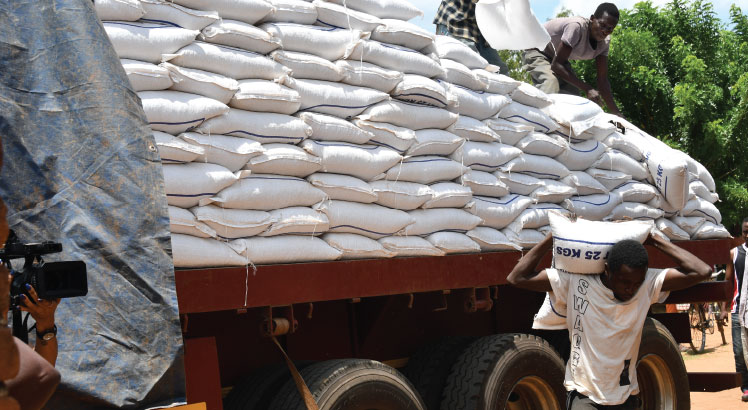In response to mounting concerns over food insecurity, the Ministry of Public Service, Labour, and Social Welfare has been urged to revise its current strategy of distributing maize in three-month batches until next March, as this approach might leave out other beneficiaries.
Speaking in Parliament yesterday, Zvimba East Constituency Member of Parliament Kudakwashe Mananzva questioned the Ministry on measures taken to ensure everyone gets maize grain.
“My question is directed to the Minister of Public Service, Labour, and Social Welfare. We are grateful for the maize being distributed, but my concern is that only a few are benefiting. One family can take up to six bags while another gets none. What measures are you taking to ensure that everyone gets maize grain because everyone is facing starvation?” he said.
In response, Deputy Minister of Public Service, Labour, and Social Welfare, Mercy Dinha, outlined the government’s strategy.
“At the moment, there are 6,100,000 beneficiaries of grain in rural areas. What is happening is that if a household is receiving maize, it consists of a father, mother, and six children, for example, all receiving grain. Each person receives 7.5 kg of maize,” she said.
She explained that people are receiving grain for three months’ allocation at one time.
“One person receives 22.5 kg, which means the father, mother, and children receive 22.5 kg times six. That is why some receive a number of bags while others have not received any yet. The allocation is for the most needy at that moment,” said Dinha.
She noted that distributing maize for three months at a time reduces transport and administration costs.
“I think right now the maize we have been distributing is for May, June, and July. The distribution process will end in July. If we distribute monthly, the transport and administration costs increase. We realize that giving maize for three months reduces costs and ensures people do not have to travel frequently to receive the maize,” she said.
Chikanga MP Lynette Karenyi highlighted the widespread need and urged the government to reconsider the current system to ensure more equitable distribution.
“My question to the Hon. Minister is, according to their assessment, people in both rural and urban areas are starving. When one person receives six bags, others get nothing. The Hon. Minister admitted that some get as much as six bags, but everyone is starving,” she said.
“As Government, why not distribute the maize to everyone for the three-month batch? It is better to give a bag per household than distributing six bags to one household. Can the Ministry not come up with another method to ensure that everyone receives maize on time?” said Karenyi.
Dinha mentioned that the government would review and potentially revise the current distribution criteria.
“The current criteria is a rule gazetted by Government. If that needs to be changed, Government has to sit down and revise the system to ensure that everyone benefits and each household gets a bag of maize. But at the moment, we are following the laid down procedure,” she said.
In light of the critical food shortages in areas such as Mutoko, MP Mananzva stressed the urgency for immediate and fair distribution.
“If you say Government laid down that procedure, we are the Government, and we are saying in Mutoko, no one received rains. So, we want to know how you are going to distribute the maize expeditiously because everyone is starving. The situation is dire out there,” he said.
Deputy Minister Dinha promised swift action.
“I think we will sit down and ensure that we follow your recommendations. On Monday, we will sit down together with the Ministry of Agriculture to ensure that we act accordingly,” she said.

